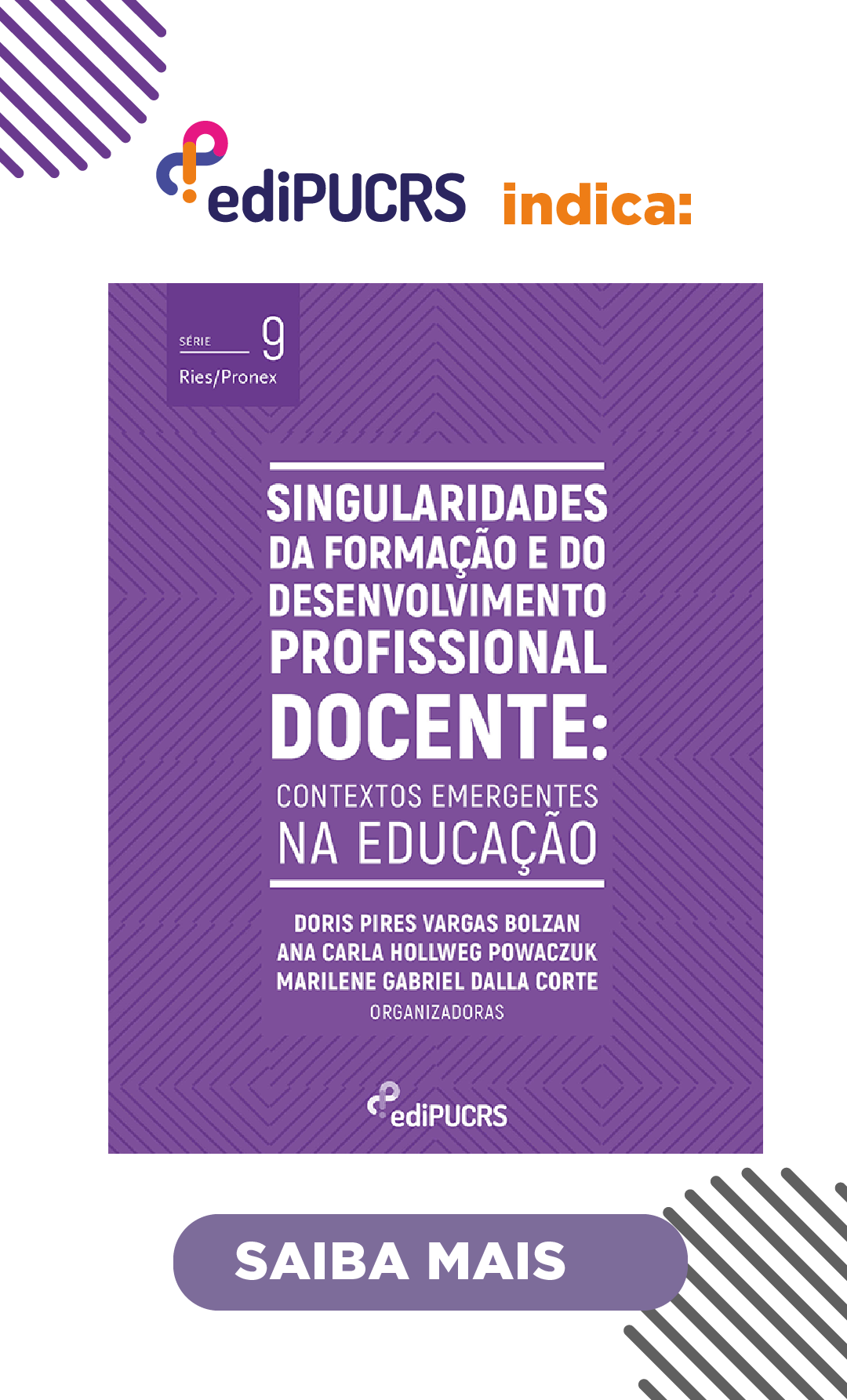The reform of secondary education in the state of Bahia and the teaching of Physical Education
The context of text production
DOI:
https://doi.org/10.15448/2179-8435.2022.1.43681Keywords:
educational policy, high school, Physical EducationAbstract
This article aims to analyze the context of text production of the Documento Curricular Referencial da Bahia in the High School stage, as well as the implications of the document for the teaching of Physical Education. It is a qualitative research, of the documentary type. We use Stephen Ball’s policy cycle approach to better understand the process of elaborating a new educational policy in the State of Bahia for the last stage of basic education. We found that the DCRB, in line with the national educational policy, introduces important changes to the curriculum of schools, such as curricular flexibility, an increase in the annual workload, the valorization of some curricular components to the detriment of others, and a strong presence of business discourse for education. We also observed that the reduction in the workload of Physical Education in the curriculum will imply an increase in teaching work and in the teaching-learning process, possibly the contents of body culture will be worked on in a superficial way, affecting the integral formation of Bahian students.
Downloads
References
BAHIA. Secretaria do Estado. Documento Base Educar para Transformar: Um pacto pela Educação. Salvador: Secretaria do Estado da Educação, 2015. Disponível em: http://institucional.educacao.ba.gov.br/system/files/private/midiateca/documentos/2015/documento-base-educar-para-transformar.pdf. Acesso em: 10 ago. 2022.
BAHIA. Secretaria do Estado. Documento Orientador para Implementação do Novo Ensino Médio. Salvador: Secretaria do Estado da Educação, 2019. 28 p.
BAHIA. Secretaria do Estado. Documento Orientador para Implementação do Novo Ensino Médio. Salvador: Secretaria do Estado da Educação, 2020. 24 p.
BAHIA. Secretaria do Estado. Documento Curricular Referencial da Bahia etapa Ensino Médio. Salvador: Secretaria do Estado da Educação, 2021. (Versão Preliminar). 300 p.
BALL, Stephen J. Education Reform: a critical and post-structural approach. Buckingham: Open University Press, 1994.
BALL, Stephen J. Profissionalismo, gerencialismo e performatividade. Cadernos de Pesquisa, [S. l.], v. 35, n. 126, set./dez. 2005.
BALL, Stephen J. Vozes/Redes políticas e um currículo neoliberal global. Espaço do Currículo, [S. l.], v. 3, n. 1, p. 485-498, 2010.
BALL, Stephen J. What is policy? 21 years later: Reflections on the possibilities of policy research. Discourse: Studies in the cultural politics of education, [S. l.], v. 36, n. 3, p. 306-313, 2015.
BRASIL. Medida provisória nº 746, de 22 de setembro de 2016. Institui a Política de Fomento à Implementação de Escolas de Ensino Médio em Tempo Integral, altera a Lei n º 9.394, de 20 de dezembro de 1996, que estabelece as diretrizes e bases da educação nacional, e a Lei n º 11.494 de 20 de junho 2007, que regulamenta o Fundo de Manutenção e Desenvolvimento da Educação Básica e de Valorização dos Profissionais da Educação, e dá outras providências. Brasília, DF: Presidência da República, 2016. Disponível em: http://www.planalto.gov.br/ccivil_03/_ato2015-2018/2016/mpv/mpv746.htm. Acesso em: 8 jun. 2022.
BRASIL. Lei n. 13.415, de 16 de fevereiro de 2017. Institui a Política de Fomento à Implementação de Escolas de Ensino Médio em Tempo Integral. Brasília, DF: Presidência da República, 2017. Disponível em: http://www.planalto.gov.br/ccivil_03/_ato2015-2018/2017/lei/l13415.htm. Acesso em: 8 jun. 2022.
BELTRÃO, José Arlen; TEIXEIRA, David Romão; TAFFAREL, Celi Nelza Zulke. A educação física no novo ensino médio: implicações e tendências promovidas pela reforma e pela BNCC. Práxis Educacional, [S. l.], v. 16, n. 43, p. 656-680, 2020. Disponível em: https://periodicos2.uesb.br/index.php/praxis/article/view/7024. Acesso em: 6 mar. 2022.
CARNEIRO, Eudite F. A recontextualização do currículo no ensino médio: estudo de caso do ensino médio com intermediação tecnológica. 2019. 140 f. Dissertação (Mestrado em Ensino) – Universidade Estadual do Sudoeste da Bahia, Vitória da Conquista, 2019.
CORRÊA, Cintia C. M. Trabalho Docente e Reformulação Curricular: transformações, disputas e poder um estudo de caso. Curitiba: Editora CRV, 2018.
EUGENIO, Benedito. Política curricular para o ensino médio: permeabilidades entre contextos e a cultura da escola. 2009. 200 f. Tese (Doutorado em Educação) – Faculdade de Educação, Universidade Estadual de Campinas, Campinas, 2009.
FERRETTI, Celso J. A reforma do Ensino Médio e sua questionável concepção de qualidade da educação. Estudos Avançados, [S. l.], v. 32, n. 93, p. 25-42, ago. 2018.
LÜDKE, Menga; ANDRÉ, Marli E. D. A. Pesquisa em educação: abordagens qualitativas. Rio de Janeiro: E.P.U,2020.
ORTEGA, André Randazzo; HOLLERBACH, Joana D’arc Germano. Os discursos oficiais sobre as leis 5.692/71 e 13.415/17: A defesa de uma educação a serviço do capital. Educação Por Escrito, [S. l.], v. 11, n. 2, p. e31592, 3 nov. 2020.
SANTOS, Hanneli S.A. A recontextualização do ensino de Geografia no currículo do ensino médio no Estado da Bahia. 2021. 140 f. Dissertação (Mestrado em Ensino) – Universidade Estadual do Sudoeste da Bahia, Vitória da Conquista, 2021.
SOUSA, Mauricio de. Apontamentos teórico-metodológicos: contribuições de Stephen J. Ball para as pesquisas de políticas educacionais. Revista de Estudios Teóricos y Epistemológicos en Política Educativa, [S. l.], v. 3, p. 1-22, 2018.
Downloads
Published
How to Cite
Issue
Section
License
Copyright (c) 2022 Educação Por Escrito

This work is licensed under a Creative Commons Attribution 4.0 International License.
Copyright
The submission of originals to Educação Por Escrito implies the transfer by the authors of the right for publication. Authors retain copyright and grant the journal right of first publication. If the authors wish to include the same data into another publication, they must cite Educação Por Escrito as the site of original publication.
Creative Commons License
Except where otherwise specified, material published in this journal is licensed under a Creative Commons Attribution 4.0 International license, which allows unrestricted use, distribution and reproduction in any medium, provided the original publication is correctly cited.





